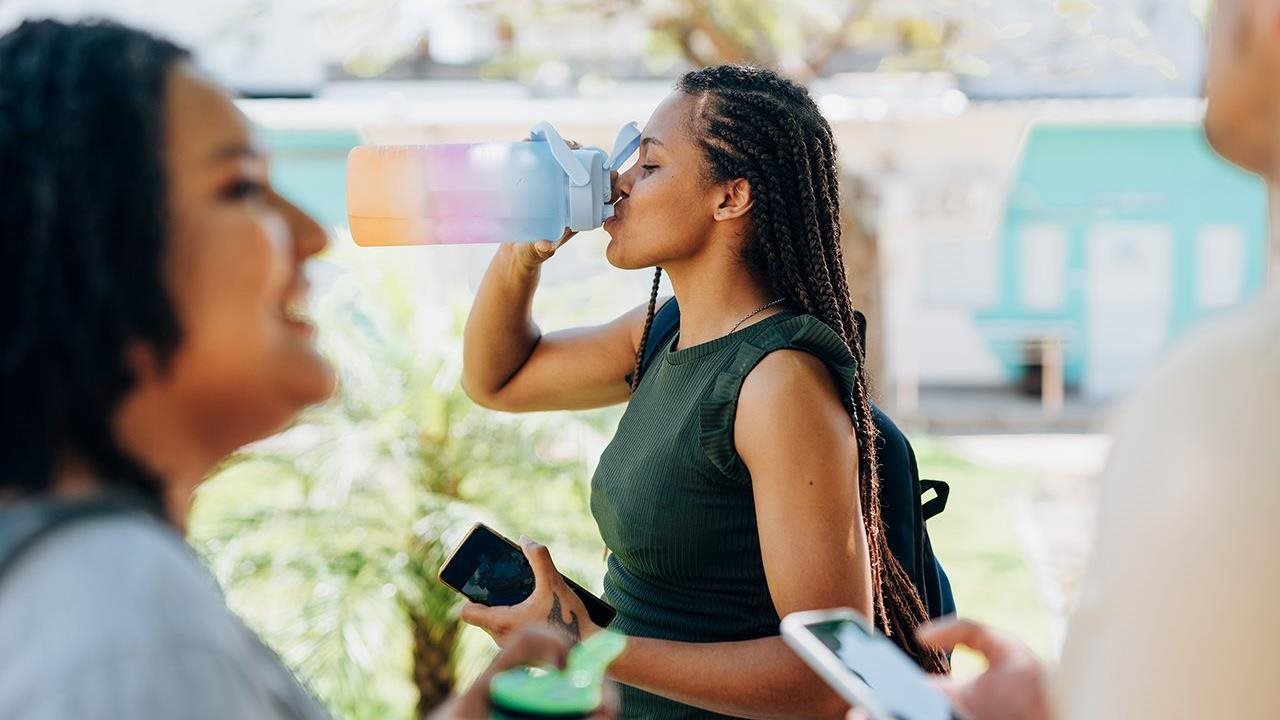Extreme heat is a leading cause of weather-related deaths in the U.S., but many people are unaware of the dangers — especially in places that don't usually face such high temperatures.
While hot days and heat waves are both a natural part of U.S. weather patterns, the nation is seeing a years-long trend of extreme heat becoming more frequent, intense and longer lasting. Still, nearly half of adults in the U.S. (43%) do not believe a heat wave is likely or very likely to cause them harm in the next five years.
Extreme heat can pose serious health concerns, particularly to those with higher risks of getting sick, such as older adults, children, pregnant women, outdoor workers and people with chronic health conditions or who take medicine.
With experts predicting a hotter-than-normal summer, the American Red Cross is encouraging everyone to keep safe by staying hydrated, cool and connected with these tips.
Stay hydrated.
- Drink a cup of water every 20 minutes, even if you don't feel thirsty.
- Avoid drinks with sugar, caffeine or alcohol.
- Check your urine color — dark yellow means you need to drink more water.
Stay cool.
- Spend time in air-conditioned places.
- If your home gets too hot, plan to go to an air-conditioned place like a local mall, library or cooling center. Being in the shade outside may be cooler than staying inside without air conditioning.
- Take a cool shower or bath to help you cool down. You can also use a wet cloth, spray water on your skin or wear damp clothing.
- Limit outdoor activity to when it's cooler, like in the early morning or after sunset, and stay in the shade as much as possible.
- Wear lightweight, loose-fitting clothes in light colors to stay cool.
Stay connected.
- Check on neighbors and loved ones — especially older adults, individuals with disabilities or health problems, and people who live alone. Make sure they are staying cool and hydrated.
- Talk to your doctor if you have a health condition, are pregnant or are taking medicine, as you may be at increased risk for heat illness.
- Sign up for free emergency alerts from your local government to get updates about extreme heat.
It's important to act fast when you see signs of heat illness, which happens when your body can't cool itself down properly. Everyone is vulnerable if exposed to high temperatures for long enough, including young adults, athletes and healthy people. There are different types of heat illnesses, and some, like heat exhaustion and heat stroke, are more serious.
Extreme heat is too dangerous to be invisible. Knowing what to do to protect yourself and your loved ones can save lives. Visit redcross.org/heatcheck for the information you need to stay safe.



